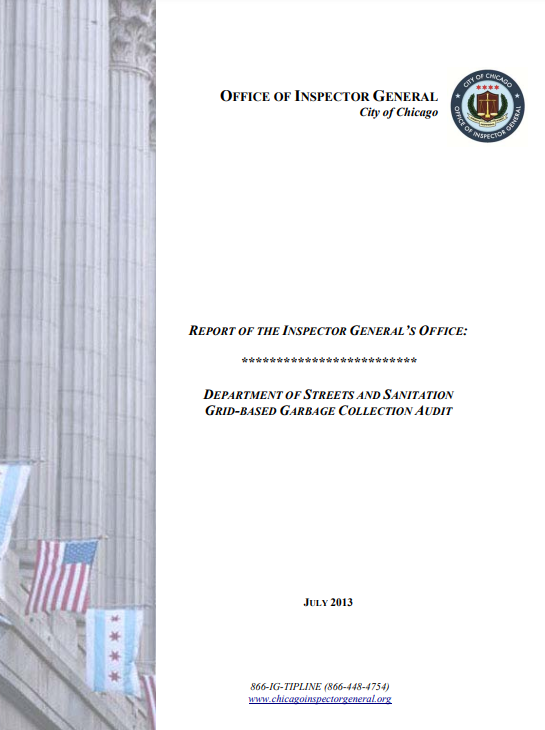Audit of City’s Grid-Based Garbage Collection System
Summary
In December 2012, the IGO initiated an audit to determine what impact the transition to the grid-based garbage collection system had on City resources. Specifically, we sought to validate the changes in trucks and personnel caused by the transition, and to understand DSS management’s intended methodology to maximize operational efficiency on a forward-going basis.
Executive Summary
The purpose of this audit was to evaluate the City’s transition from a ward-based to a grid-based garbage collection system and identify how management would continue to drive efficiency gains in the future. The IGO planned to determine what impact the transition to the grid-based garbage collection system had on City resources, measured by trucks and personnel. Furthermore, we intended to gain an understanding of DSS management’s intended methodology to maximize operational efficiency on a forward going basis. Finally, we planned to determine whether the supervisory structure, carried over from the ward-based system, was efficient and effective in the new grid-based system.
During the audit, the IGO auditors pressed DSS management about performance measures they would use to monitor operations. However, the Commissioner walked out of the meeting without providing specific answers and continued to refuse to cooperate with the IGO by not responding to an additional request to continue the discussion.
Subscribe to the OIG Bulletin to get notified about future publications.

